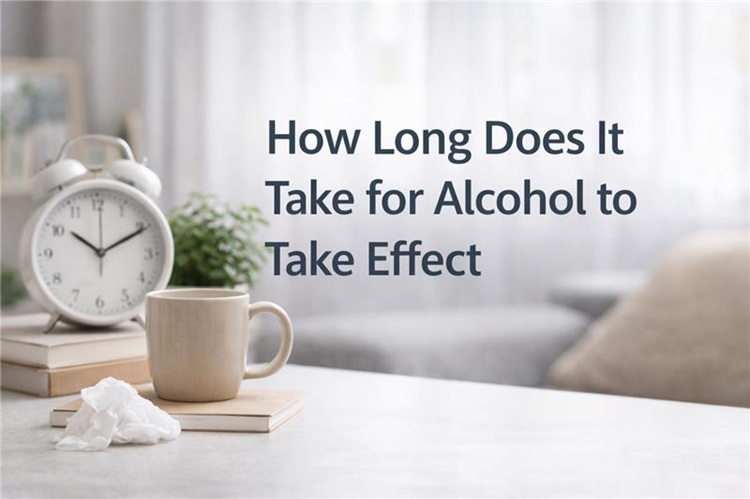Bipolar disorder is a complicated and facing condition of the mind, with an excellent understanding of people that influences mood, energy level, and functional capacity. It is characterized by the drastic swings of moods (manic/hypomanic euphoria and depressive states). Although bipolar disorder can be treated successfully, the probability of untreated bipolar disorder may be devastating and permanent. The consequences of going untreated and untimely can vary between ruined relationships and loss of employment, a deeper possibility of substance abuse and even suicide.
The DeLand Treatment Solutions is designed to help you understand all that characterizes this lived bipolar disorder and is here to see you through to stability, recovery and use of your money to live better.
What is Bipolar Disorder?
Bipolar disorder is an illness that has a direct connection with mood which implies such extreme changes in the emotional state of a person. Such fluctuations are way beyond the ordinary mood swings, and they can affect the normal capacity of a person to lead a stable, productive life. The disorder usually emerges during late adolescence or early adulthood, although it might also manifest itself either in childhood or in old age.
There are several types of bipolar disorder:
- Bipolar I Disorder: Bipolar disorder is characterized by the occurrence of a manic episode that lasts not less than seven days or a severe mania that requires hospitalization, and in most cases, it is accompanied by depressive episodes.
- Bipolar II Disorder: it deals with a combination of a series of depressive and probing, though not blatant, blindsided episodes.
- Cyclothymic Disorder (Cyclothymia): It is characterized by recurrent hypomanic and depressive episodes that fail to meet full-blown criteria.
- Other Types: Bipolar symptoms that cannot be easily classed into the above categories but still pose an impairment.
Common Bipolar Disorder Symptoms
Manic or hypomanic episodes may include:
- Excessive energy and reduced need for sleep
- Elevated or irritable mood
- Grandiose thoughts or inflated self-esteem
- Rapid speech and racing thoughts
- Poor judgment or impulsive behavior
Depressive episodes may include:
- Persistent sadness or hopelessness
- Fatigue or loss of energy
- Difficulty concentrating or making decisions
- Feelings of worthlessness or guilt
- Suicidal thoughts or behaviors
Knowledge of bipolar disorder symptoms is important in realizing that they require help and they will not improve with time.
What Happens When Bipolar Disorder Goes Untreated?
Bipolar disorder, when untreated, may cause serious disturbances in life and worsening of mental condition. The untreated nature of the disease usually gets worse and results in:
Increased Severity of Mood Episodes As time goes by, the low points and the high points become more common and exaggerated. Otherwise, individuals can develop a more serious version of the disorder in which the level of emotional and behavioral instability is higher. Higher Risk of Suicide The rate of suicide among mental illnesses is high in bipolar disorder. Untreated people have a significantly higher likelihood of making attempts at suicide or dying as a result of suicide, especially in the case of depressive mood or mixed states. Impaired Relationships and Social Isolation The mood swings and occasional changes in behavior may cause great pressure in relationships among partners, family, friends, and at the workplace. This left unattended may lead to social withdrawal, divorce, loss of jobs as well as loneliness. Substance Abuse and Addiction A great number of bipolar disorder victims resort to drugs or alcohol to manage emotional excesses that they cannot endure. This self-treatment may rapidly develop into comorbid substance use disorders, further complicating the situation and increasing the complications of recovery. Legal and Financial Issues Manic episodes are known to result in poor judgment, which can lead to reckless spending, legal affliction, or dangerous behavior. Severe cases are hardly without financial instability and criminal charges. Deterioration of Physical Health Physical health may also be affected by the untreated bipolar disorder, which may result in an inability to sleep properly, weight gain or loss, cardiovascular problems, and weakened immunity, which may be caused by chronic stress.To put it in short, the more undermedicated a bipolar disorder is, the more management there is to do. Management of the condition should be early and continuous so as to prevent severe complications that are involved with the condition.

Unmedicated Bipolar Disorder
Other people also consider trying to live with bipolar disorder without the use of medication, either because they fear side effects or they feel otherwise stigmatized or they simply choose to think that nothing can be wrong. Nevertheless, this strategy may be highly dangerous.
Bipolar disorder medication plays a central role in stabilizing mood and preventing relapses. Common medications include:
- Mood stabilizers (e.g., lithium)
- Antipsychotics
- Antidepressants (used with caution and monitoring)
- Anti-anxiety medications
The attempt to manage it without the use of proper medical assistance can result in chronic instability. Individuals who do not take medication have significant risks of relapse and long-term loss of functioning.
One should not forget that every individual reacts differently to a drug. Mental health practitioners collaborate with people as they seek the best combinations and dosages to be used in management.
What Do You Learn in Bipolar Disorder Treatment?
Treatment of bipolar disorder is not only medication alone it is a multidimensional prospect, which incorporates education, therapy, and modification of lifestyle. At DeLand Treatment Solutions, our aim is to help people to become in charge of their health and become resilient.
In bipolar disorder treatment, you’ll learn to:
- Recognize early warning signs of a manic or depressive episode
- Manage triggers such as stress, sleep disruptions, and substance use
- Build a stable routine to support emotional regulation
- Develop coping skills through individual and group therapy
- Communicate effectively with loved ones and treatment teams.
- Set realistic goals for recovery and long-term well-being.
It is not unusual that individuals with bipolar disorder also have other mental problems, and this may include:
Treating Bipolar and Co-occurring Disorders
It’s common for people with bipolar disorder to also struggle with other mental health conditions, such as:
Integrated treatment is crucial when dealing with co-occurring disorders. At DeLand Treatment Solutions, our team of licensed professionals designs a customized care plan that addresses all aspects of your mental and emotional health.
Treatment options may include:
- Medication management
- Cognitive Behavioral Therapy (CBT)
- Dialectical Behavior Therapy (DBT)
- Group therapy and peer support
- Family therapy
- Holistic therapies such as mindfulness, exercise, and nutrition counseling
Our goal is to provide you with a supportive and structured environment where recovery is not only possible, it’s expected.
Find the Right Mental Health Treatment Program at DeLand Treatment Solutions
When experiencing the symptoms of bipolar disorder, it is best not to hesitate. Bipolar disorder causes severe damage when left untreated and it is treatable with the appropriate form of treatment, which can make a person stable and hopeful.
DeLand Treatment Solutions specializes in evidence-based, compassion-based treatment of bipolar disorder and co-occurring conditions. Whether it is medication management, individual-based therapy, or lifestyle coaching, we are ready to help you or your loved ones walk the road to recovery.

We provide individual mental care under a safe, homelike atmosphere where you will be treated fairly and with respect. Allow us to be the initial step that leads to your recovery.
Take Action Today
Don’t let untreated bipolar disorder control your life. Contact DeLand Treatment Solutions now at (386) 866-8689 to begin your recovery journey. We’re here to provide the tools, support, and care you need to live a balanced and fulfilling life.





















